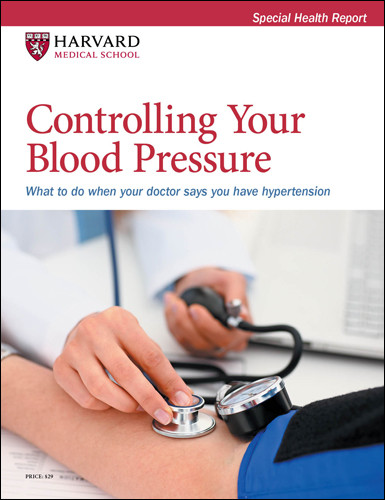Is snow shoveling safe for people with heart disease?
Ask the doctor

Q. My kids used to shovel the snow from our driveway each winter, but now that they've left for college, I've taken over this task. Is this safe, given that I had a mild heart attack a few years ago?
A. In my practice, this question comes up every winter as soon as the snowflakes start falling. It usually comes from my patient's spouse and is often accompanied by a worried look. It's no wonder: every year, there are news reports about people who have a heart attack while shoveling snow.
There are two reasons why this particular activity is hazardous: intense exercise and cold temperatures. First, shoveling snow — especially wet, heavy snow — puts a much higher workload on the heart than what people normally do for their exercise. To estimate the intensity of an activity or exercise, experts often use metabolic equivalents (METs). One MET is how much energy you use just sitting still. Moderate-intensity exercises are 3 to 5.9 METs, while vigorous-intensity exercises — like shoveling snow — are 6 METs and higher.
So when you're shoveling snow, you can reach your maximum heart rate after just a few minutes, as your heart has to work hard to send oxygen-rich blood to your leg and arm muscles. But if you have coronary artery disease (that is, one or more of your heart's arteries is narrowed), there may not be enough blood to supply your heart muscle. The result is chest pain, also known as angina pectoris. If the pain intensifies and persists, that's a heart attack.
The second reason is that after a snowstorm, it's quite cold outside — and cold temperatures can make arteries constrict. This further exacerbates any blood flow problems in the heart's arteries. A Swedish study published Sept. 24, 2024, in the Journal of the American College of Cardiology just reaffirmed this risk: researchers documented a rise in hospitalizations for heart attacks in the days after a cold snap.
So it's likely that the intense physical exertion from shoveling show combined with cold weather is what makes this practice risky for people who have or are at risk of heart disease. I've never heard of anyone having a heart attack while raking leaves, perhaps because it's not as cold and the effort isn't as intense — about 4 METs.
As a rule, I recommend that my patients avoid shoveling snow. However, if you've had a normal stress test (that is, the test showed no reason for concern) or you routinely do vigorous exercise (such as running, playing singles tennis, or cycling 10 mph or faster), it's reasonable to remove an inch or two of snow from your driveway or sidewalk. But take it slow and pay close attention to how you're feeling. Note that even maneuvering a heavy snow-blower can be taxing. After a heavy snowfall, play it safe and hire a professional.
Image: © Nes/Getty Images
About the Author

Christopher P. Cannon, MD, Editor in Chief, Harvard Heart Letter; Editorial Advisory Board Member, Harvard Health Publishing
Disclaimer:
As a service to our readers, Harvard Health Publishing provides access to our library of archived content. Please note the date of last review or update on all articles.
No content on this site, regardless of date, should ever be used as a substitute for direct medical advice from your doctor or other qualified clinician.
















